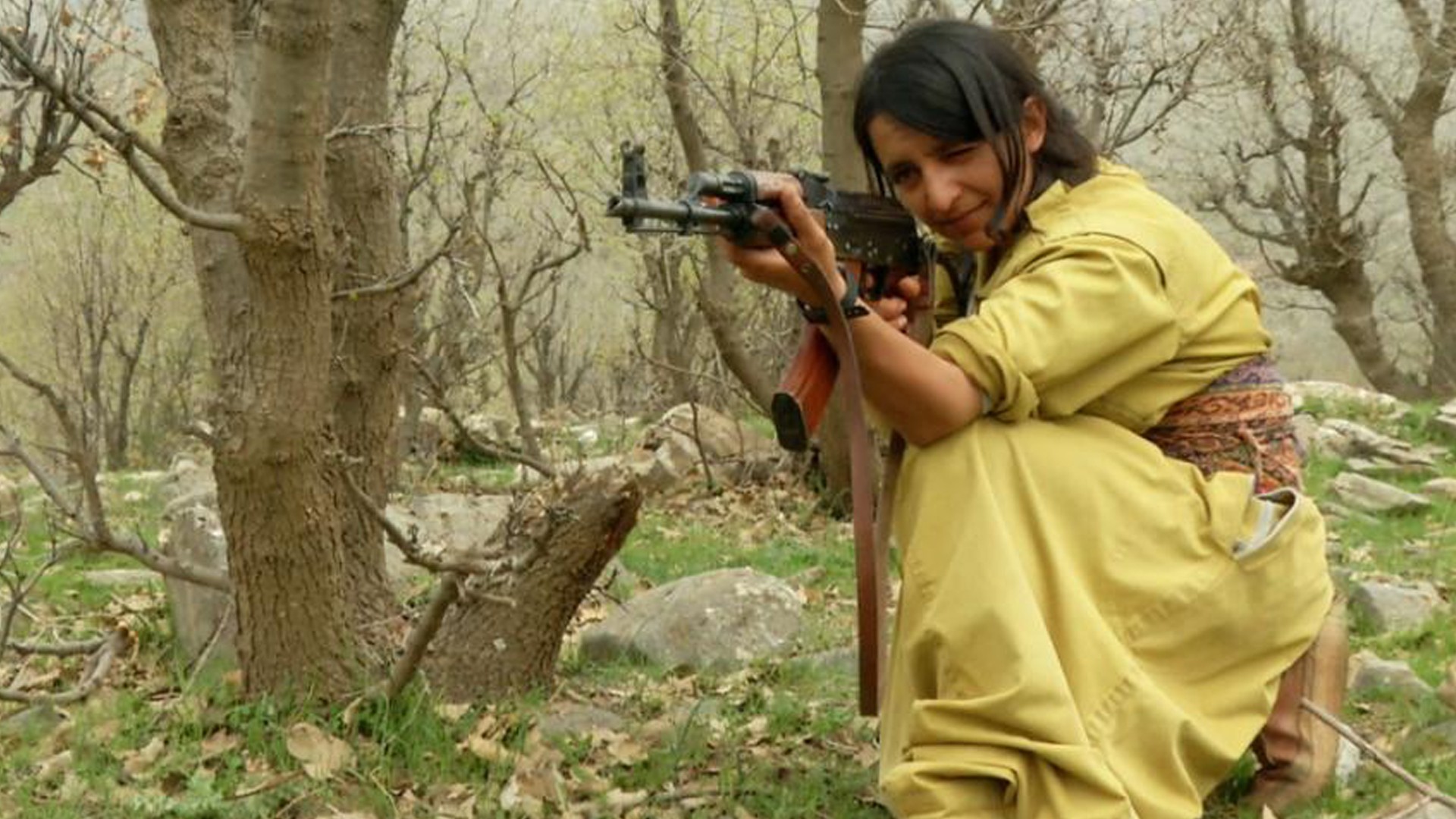Watch on VICE: Female Fighters of Kurdistan:

Alexievich's subjects also relate their various traumas and sorrows following the war: "It was later that they began to honor us, 30 years later," explains Valentina Pavlovna Chudaeva, an anti-aircraft artillery commander. "But back then we hid, we didn't even wear our medals. Men wore them, but not women. Men were victors, heroes, wooers, the war was theirs, but we were looked at with quite different eyes… I'll tell you, they robbed us of the victory. They quietly exchanged it for ordinary women's happiness." And yet, within painful dialogues like Chudaeva's, there emerges a kind of hope, or at least healing, through the redeeming power of literature, of testimony. "It's terrible to remember," she says. "But it's more terrible not to remember."
Photo by Margarita Kabakova/courtesy of Penguin Random House
"I Don't Want to Remember…"
First sergeant, sniperThe first time is frightening… Very frightening…We were in hiding, and I was the lookout. And then I noticed one German poking up a little from a trench. I clicked, and he fell. And then, you know, I started shaking all over, I heard my bones knocking. I cried. When I shot at targets it was nothing, but now: I—killed! I killed some unknown man. I knew nothing about him, but I killed him.Then it passed. And here's how… It happened like this… We were already on the advance. We marched past a small settlement. I think it was in Ukraine. And there by the road we saw a barrack or a house, it was impossible to tell, it was all burned down, nothing left but blackened stones. A foundation… Many of the girls didn't go close to it, but it was as if something drew me there… There were human bones among the cinders, with scorched little stars among them; these were our wounded or prisoners who had been burned. After that, however many I killed, I felt no pity. I had seen those blackened little stars……I came back from the war gray-haired. Twenty-one years old, but my hair was completely white. I had been badly wounded, had a concussion, poor hearing in one ear. Mama met me with the words: "I believed you'd come back. I prayed for you day and night." My brother had fallen at the front.
I don't know why we weren't afraid… Now I don't understand it. We were advancing, advancing very quickly… And we ran out of steam, our supplies lagged behind: we ran out of ammunition, out of provisions, and the kitchen was demolished by a shell. For three days we ate nothing but dry crusts; our tongues were so scraped we couldn't move them. My partner was killed, and I went to the front line with a "new" girl. And suddenly we saw a colt on "no man's land." Such a pretty one, with a fluffy tail… Walking about calmly, as if there wasn't any war. And I heard the Germans make some stir, having seen him. Our soldiers also started talking among themselves."I knew nothing about him, but I killed him."
The Red Army Soviet female snipers gathered before leaving to the front in 1943. Photo credit: Krasutskiy/AFP Photo/Getty Images
"There were human bones among the cinders, with scorched little stars among them; these were our wounded or prisoners who had been burned. After that, however many I killed, I felt no pity. I had seen those blackened little stars."
The Red Army Soviet sniper Lyuba Makarova at the meeting of the 3rd Shock Army's at the Kalinin front in 1943. Photo credit: Ozerksy/AFP/Getty Images
Watch Desus and Mero on VICELAND: Is It OK to Punch a Nazi?

Just recently, about eight years ago, we found our Mashenka Alkhimova. The commander of the artillery division was wounded; she crawled to save him. A shell exploded right in front of her… The commander was killed, she didn't make it to him, and both her legs were so mangled that we were barely able to bandage her. We had a hard time with her… We carried her to the first-aid station, and she kept asking: "Dear girls, shoot me dead… I don't want to live like this…" She begged and pleaded… So! They sent her to the hospital, and we went on advancing. When we started looking for her… the trail was already lost. We didn't know where she was, what had become of her. For many years… We wrote everywhere, and nobody could tell us. The "pathfinders" of Moscow's School No. 73 helped us. Those boys, those girls… They found her in a veterans' home, somewhere in [the mountainous region of] Altai, 30 years after the war. So far away. All those years she had been traveling from one invalid home to another, from one hospital to another, undergoing dozens of surgeries. She didn't even tell her mother she was alive… She hid from everybody…We brought her to our reunion. We were all bathed in tears. Then we brought her together with her mother… They met 30 years after the war… Her mother almost lost her mind. "I'm so happy that my heart didn't break from grief before now. So happy!" And Mashenka repeated: "Now I'm not afraid to meet people. I'm already old." Yes… In short… That's war…I remember lying at night in the dugout. I am not asleep. Somewhere there is artillery fire. Our cannons are shooting… I really didn't want to die… I gave an oath, a military oath, that if need be I'd give my life, but I really didn't want to die. Even if you come home alive, your soul will hurt. Now I think: it would be better to be wounded in an arm or a leg. Then my body would hurt, not my soul… It's very painful. We were so young when we went to the front. Young girls. I even grew during the war. Mama measured me at home… I grew four inches…Saying goodbye, she awkwardly reaches her hot arms out and embraces me:Forgive me…From the book THE UNWOMANLY FACE OF WAR by Svetlana Alexievich, to be published on July 25, 2017, by Random House, a division of Penguin Random House LLC. Copyright © 2017 by Svetlana Alexievich. All Rights Reserved.
